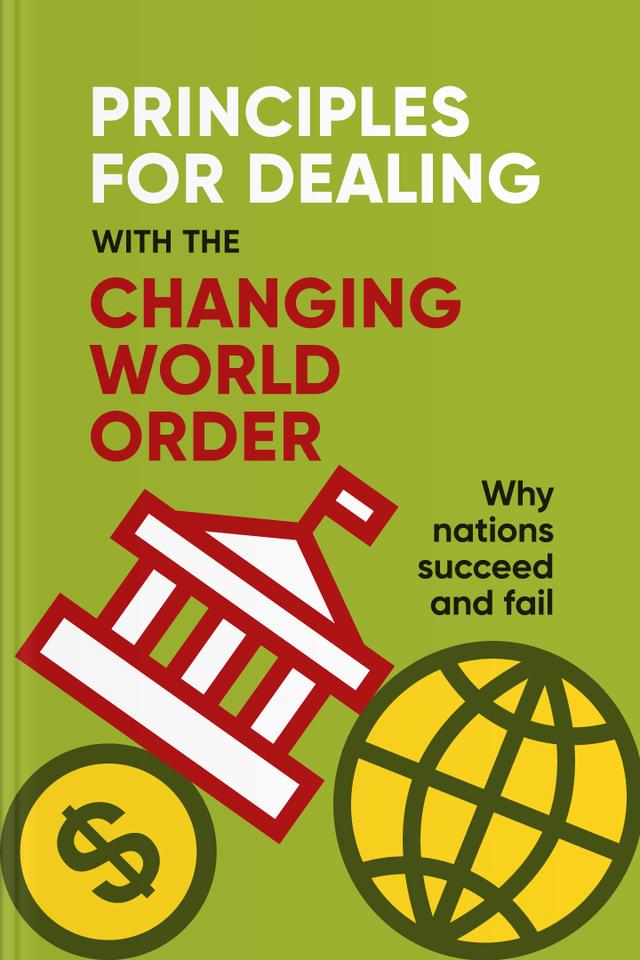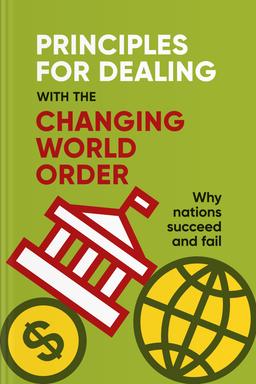You’ll learn
- Why do empires fall
- What drives global power
- How to handle change
- About the Big Cycle
Protect the world’s peace. Donate to support Ukraine

first KEY POINT
The events of the past are not simply stories for entertainment. They can also be used as careful reminders of what can happen if we take certain roads. Throughout centuries we’ve seen empires rise into immense, global powers before taking a hit and declining quickly. Why did all of that happen, and could it have been avoided?In some ways, yes. Understanding the common cycles that often repeat themselves throughout history makes it possible to understand the signs and perhaps even sidestep to prevent the same things from happening again.We’re living in turbulent times, lurching from one international crisis to another, not to mention internal country problems, with a high cost of living and unemployment. To truly understand the current situation and look to improve in the coming years, we need to look back on similar past experiences. Ray Dalio studied such events as the fall of the British and Dutch Empires, the drastic collapse of Chinese Dynasties, and now, the current situation we find ourselves in — the post-pandemic world.The fascinating truth is that everything that led up to these events repeated itself previously. Life cycles are defined and evolve from one generation to the next. In every global story Dalio studied, he saw what he calls the Big Cycle. It’s similar to a TV series flowing from one episode into the next.
We tend to miss the bigger things behind the scenes because we’re so focused on our own lives and the small things we have going on. But, by learning from the past, we can use those lessons to improve the future. In that case, history won’t keep repeating itself in negative ways.It’s easy to think that the world order we have currently is a new thing, but it’s happened many times. In this summary, you will learn to understand the Big Cycle and how it impacts our lives. With that knowledge, perhaps the future will be brighter than before.
second KEY POINT
We have seen two things become driving forces for disaster and change throughout history – money and power. There has long been a struggle worldwide to create and distribute wealth and power, which usually leads to it landing in the lap of those who don’t need it as much as others. In particular, unfair distribution of wealth is one of the significant drivers behind internal conflicts.Throughout his studies, Ray Dalio has noticed that wealthy people tend to be the ones who own the ability to produce wealth, e.g., business people. To keep hold of that wealth or increase it, they politically work alongside those in power. The business relationship they form leads to their future flourishing, while the rest of the population struggles. In that case, a small percentage of people hold all the power and wealth, leading to revolutions and conflicts. At some point, the conflict ends, and a new order is established. The cycle repeats itself once more, but we never seem to learn our lessons, creating the Big Cycle.

Continue reading with Headway app
Continue readingfirst KEY POINT
second KEY POINT
third KEY POINT
fourth KEY POINT
fifth KEY POINT